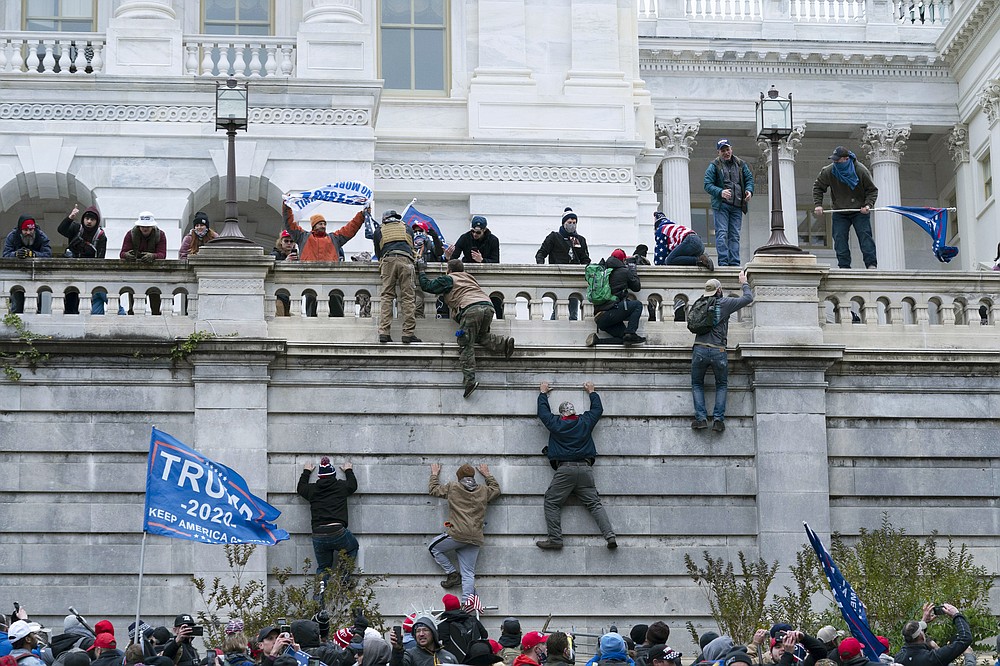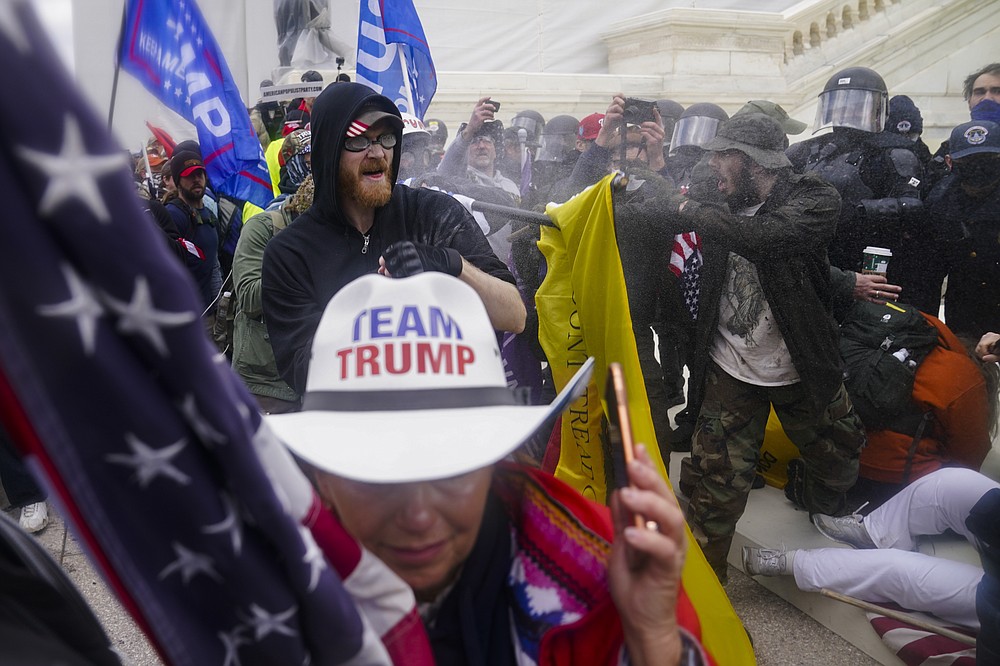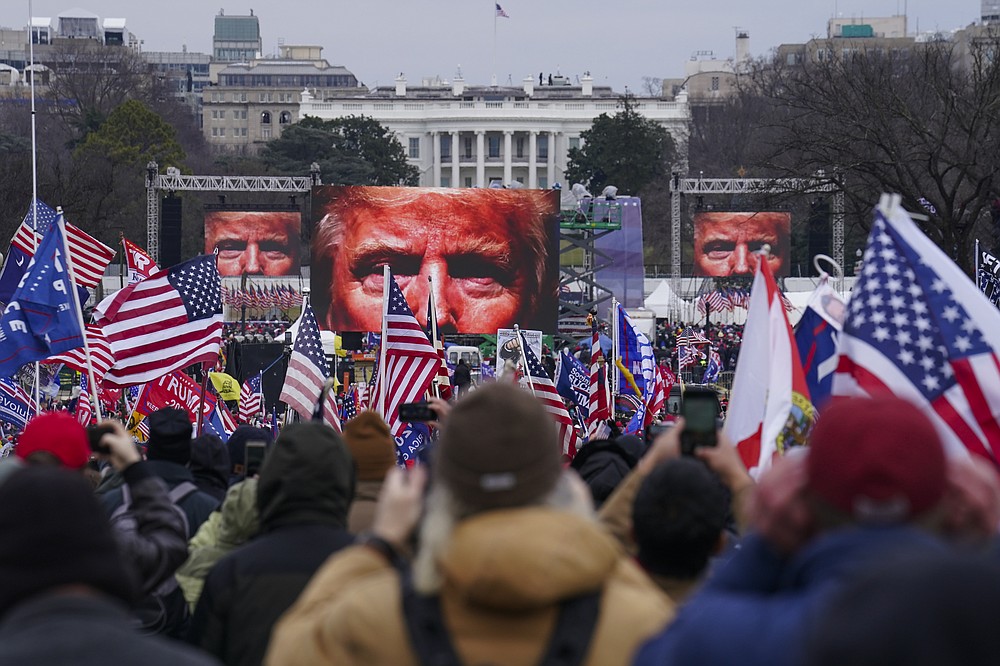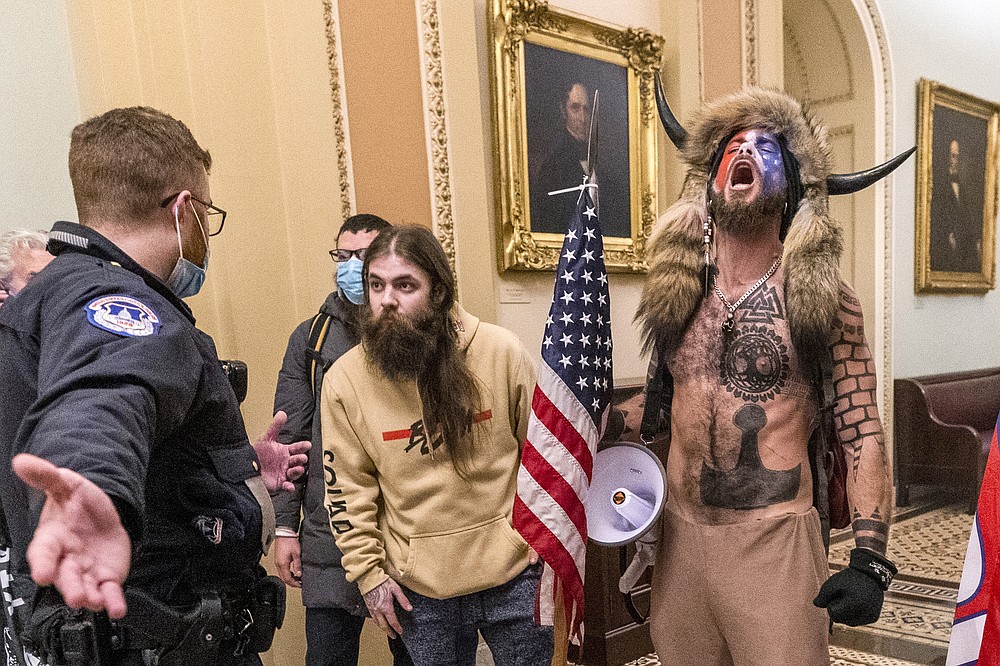Election falsehoods defense for Jan. 6 rioters
PROVIDENCE, R.I. — Falsehoods about the 2020 presidential election helped bring insurrectionists to the Capitol on Jan. 6 and now some who are facing criminal charges for their actions during the riot hope their gullibility might save them or at least engender some sympathy.
Lawyers for at least three defendants charged in connection with the violent siege tell The Associated Press that they will blame election misinformation and conspiracy theories, much of it pushed by then-President Donald Trump, for misleading their clients. The attorneys say those who spread that misinformation bear as much responsibility for the violence as do those who participated in the actual breach of the Capitol.
“I kind of sound like an idiot now saying it, but my faith was in him,” defendant Anthony Antonio said, speaking of Trump.
Antonio said he wasn’t interested in politics before pandemic boredom led him to conservative cable news and right-wing social media.
“I think they did a great job of convincing people,” he said.
After Joe Biden’s victory, Trump and his allies repeatedly claimed the race was stolen, even though the claims have been repeatedly debunked by officials from both parties, outside experts and courts in several states, and Trump’s own attorney general. In many cases, the claims about vote dumps, ballot fraud and corrupt election officials were amplified on social media, building Trump’s campaign to undermine faith in the election.
The tide of misinformation continues to spread, U.S. District Judge Amy Berman Jackson wrote Wednesday denying the release of a man accused of threatening to kill House Speaker Nancy Pelosi, D-Calif.
“The steady drumbeat that inspired defendant to take up arms has not faded away,” Berman wrote in her ruling ordering Cleveland Grover Meredith Jr. to remain in custody. “Six months later, the canard that the election was stolen is being repeated daily on major news outlets and from the corridors of power in state and federal government, not to mention in the near-daily fulminations of the former president.”
The defendants represent only a fraction of the more than 400 people charged in the failed attempt to disrupt the certification of Biden’s victory. But their arguments highlight the important role that the falsehoods played in inspiring the riot, especially as many top Republicans try to minimize the violence of Jan. 6 and millions of others still believe the election was stolen.
At least one of those charged plans to make misinformation a key part of his defense.
Albert Watkins, the St. Louis attorney representing Jacob Chansley, the so-called QAnon shaman, likened the process to brainwashing or falling into the clutches of a cult.
“He is not crazy,” Watkins said. “The people who fell in love with (cult leader) Jim Jones and went down to Guyana, they had husbands and wives and lives. And then they drank the Kool-Aid.”
Similar legal arguments failed to exonerate Lee Boyd Malvo, who at 17 joined John Allen Mohammed in a spree that sniped 10 people in the Washington, D.C., area in 2002. His lawyers tried to argue that Malvo wasn’t responsible for his actions because he had been deluded by the older Mohammed.
Attorneys for newspaper heiress Patty Hearst also argued, unsuccessfully, that their client had been brainwashed into participating in a bank robbery after being kidnapped by the radical Symbionese Liberation Army group.
“It’s not an argument I’ve seen win,” said Christopher Slobogin, director of Vanderbilt Law School’s Criminal Justice Program, a psychiatry professor and an expert on mental competency.
Slobogin said that unless belief in a conspiracy theory is used as evidence of a larger, diagnosable mental illness — say, paranoia — it’s unlikely to overcome the law’s presumption of competence.
“You pull out all the stops and make all the arguments you can make,” he said. “But just because you have a fixed, false belief that the election was stolen doesn’t mean you can storm the Capitol.”
From a mental health perspective, conspiracy theories can affect a person’s actions, said Ziv Cohen, a professor of psychiatry at Weill Cornell Medical College of Cornell University. Cohen, an expert on conspiracy theories and radicalization, often performs mental competency exams for defendants.
“Conspiracy theories may lead people to commit unlawful behavior,” Cohen said. “That’s one of the dangers. Conspiracy theories erode social capital. They erode trust in authority and institutions.”
Information for this article was contributed by Jacques Billeaud of The Associated Press.






